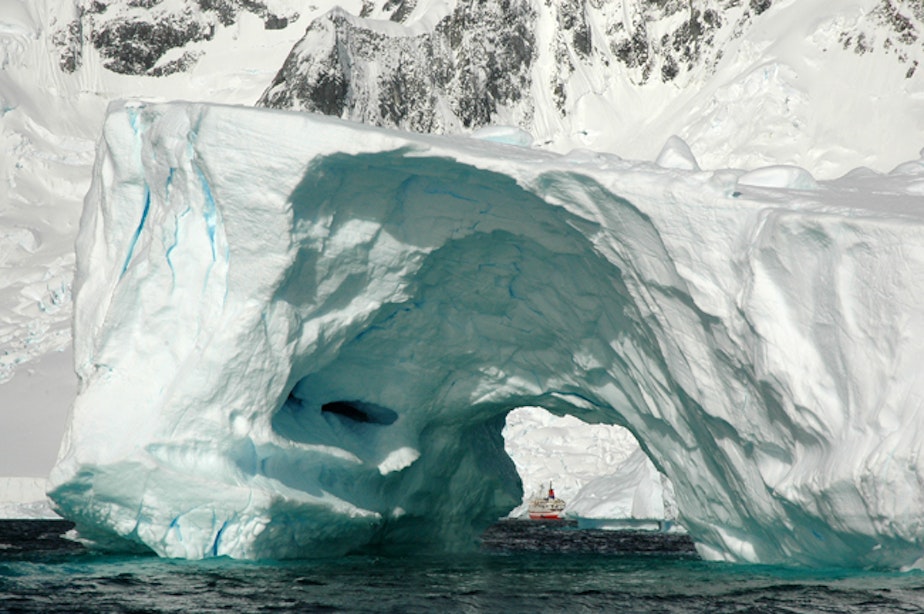New Study: Glacial Collapse In Antarctica 'Unstoppable'

New research from the University of Washington and other institutions provides detailed predictions for the collapse of an ice shelf in West Antarctica.
When the Thwaites Glacier melts, it could trigger even more extreme sea level rise than scientists previously thought.
Thwaites Glacier has been called the “weak underbelly” or the “cork in the bottle” of the West Antarctic ice sheet. Once it goes, a lot of other ice goes too.
“You can’t remove this part of West Antarctica without affecting the rest of West Antarctica, which if that were to destabilize could raise sea level by as much as 10 to 15 feet," said Ian Joughin, a glaciologist at the University of Washington’s Applied Physics Lab and the lead author of the study.
Joughin and his colleagues combined existing data with satellite measurements of the ice surface speed. They created a model that projects that the glacier could be gone in a few hundred years.
Sponsored
Scientists previously thought we, as a species, had more time to deal with this kind of sea level rise, Joughin said.
“There’s a big difference having X meters of sea level over 200 years versus 800 years because it has to do with the time span in which humans can adapt,” he said.
The study appears in the journal Science.
